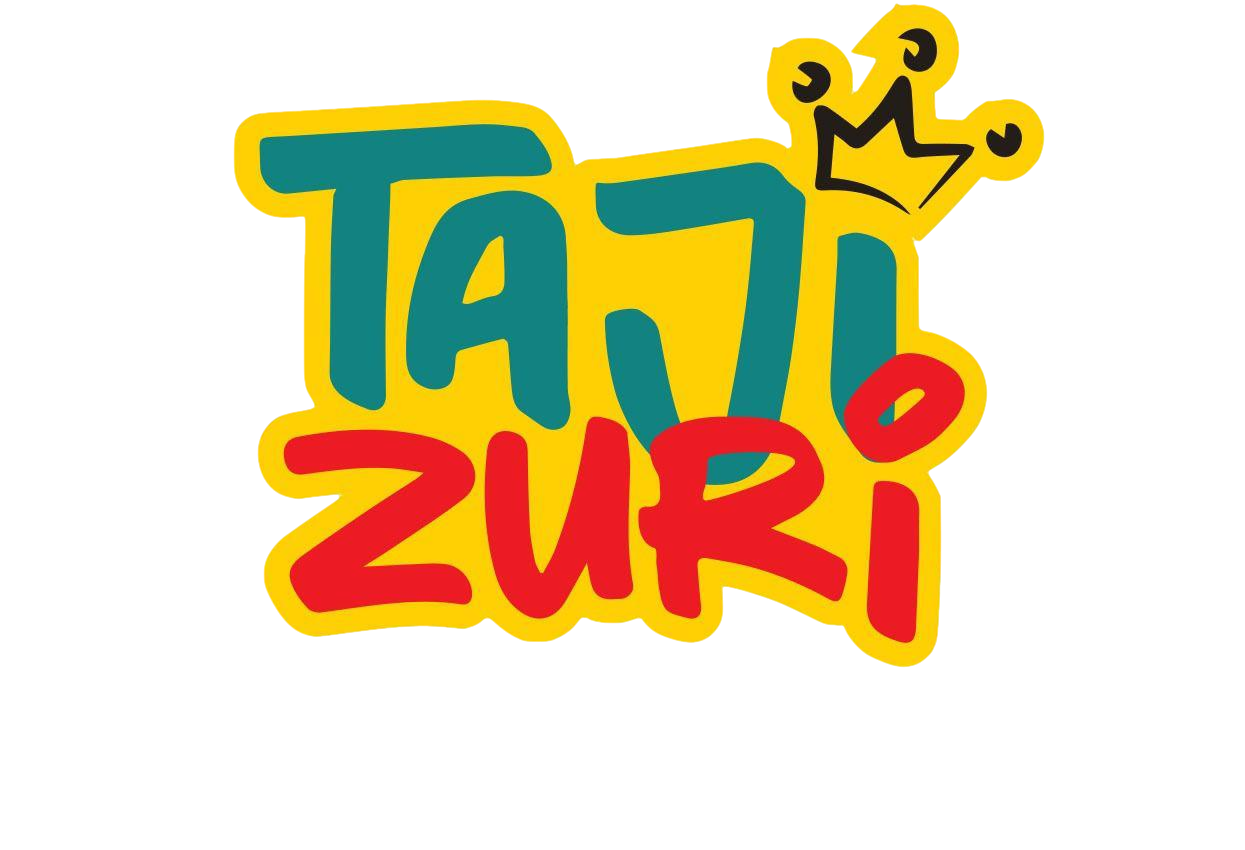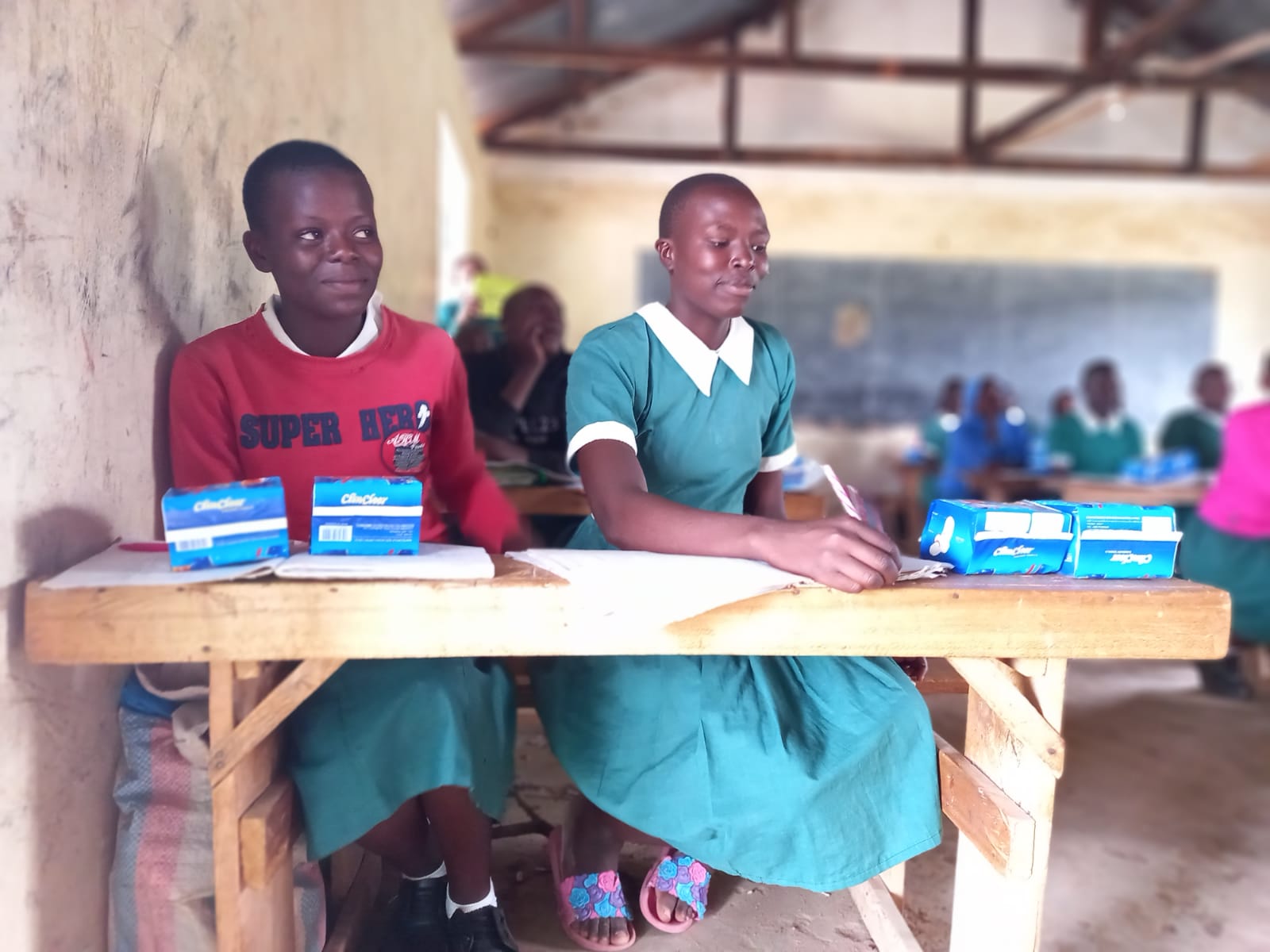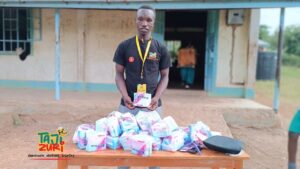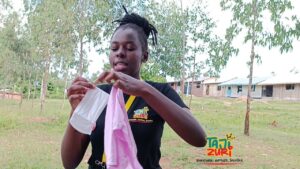Background
Menstruation is a natural and essential aspect of female reproductive health, yet it remains one of the most stigmatized and misunderstood topics worldwide. This stigma coupled with a lack of access to accurate information and resources, has a profound impact on the health, education, and dignity of millions of girls and women.
Globally (Worldwide)
UNESCO estimates that one in ten girls miss school during their menstrual cycle, which can lead to a significant loss of learning time. Additionally, in 2020, a report from UNICEF revealed that nearly 50% 0f girls in low and middle-income countries lack proper menstrual health education, often due to cultural taboos and inadequate school-based programs.
Regionally (AFRICA)
In Sub-Saharan Africa, the challenges are even more pronounced. In 2022, UNFPA conducted an assessment on menstrual hygiene management (MHM). It was found that the majority, around 57% of the girls, had poor knowledge about menstrual hygiene, and over 77% reported re-using their menstrual materials (which are non-reusable pads). Cultural myths and taboos continue to silence conversation, leading to harmful practices and exclusion from daily activities during menstruation. According to a United Nations International Children Emergency Fund (UNICEF) report, 10% of school-age African girls do not attend school during menstruation.
Nationally (KENYA)
In 2021, a report from the Ministry of Health showed that 65% of girls lack comprehensive knowledge about menstruation before their first period, contributing to fear, shame, and confusion. The same report found that only 30% of schools have adequate water, sanitation, and hygiene (WASH) facilities, further complicating menstrual hygiene management.
County (Homabay)
At county level, for instance in Homabay county, Kenya, a local survey conducted in 2022 revealed that nearly 75%of adolescent girls had never received formal education on menstrual health. Many girls reported relying on peers or older siblings for information which is often incomplete or inaccurate. In rural areas, like Kagan, access to sanitary products remains limited, and the fear of embarrassment causes some girls to miss school entirely during their periods.
These statistics highlight a pressing need for comprehensive menstrual health education. Empowering girls with accurate knowledge is not just a health issue it is their right, dignity, and equality. It is time to break the silence and challenge the stigma around menstruation.
Importance of Menstrual Health Knowledge to Girls:
- Promotes Confidence and Self-Esteem: Understanding menstrual health helps girls feel confident and in control of their bodies, eliminating embarrassment that often comes from misinformation and cultural taboos.
- Improves Hygiene and Health: Knowledge about proper hygiene practices during menstruation helps one to know how to maintain cleanliness which helps to avoid health complications that occur due to poor sanitation. Girls learn how to manage their periods safely and hygienically.
- Reduces School Absenteeism: Many girls miss school during their periods due to lack of information, fear of leaks, and lack of menstrual products. With the right knowledge and support, they can continue their education without interruption.
- Empowers Decision-Making: Menstrual education often leads to broader awareness about reproductive health, allowing girls to make informed decisions about their bodies and future.
- Breaks Stigma and Taboos: Talking openly about menstruation normalizes the topic, helping to break cultural myths and reduce discrimination or shame associated with it.
Ways to Spread Menstrual Health Knowledge:
- Digital Platforms and Mobile Apps: Educational videos, apps, and online platforms can reach girls in remote areas, especially where internet access is growing. Platforms can provide interactive content in local languages.
- Community Health Workers and NGOs: Local health workers and nonprofit organizations can deliver workshops, distribute educational materials, and offer one-on-one support in underserved areas.
- School-Based Education: integrating menstrual health into school curricula ensures all girls receive accurate and age-appropriate information.
- Distributing Print Materials: Pamphlets, booklets, posters, and comics in local languages can be shared in schools, clinics, and community centers.
- Involving Men and Boys: Educating everyone about menstruation helps remove stigma and creates a supportive environment for girls.
What TajiZuri is doing to help in spreading Menstrual Health Knowledge
TajiZuri is a charitable organization that is dedicated to addressing barriers to education, health, and community well-being through innovative, human-centered programs. One of their key initiatives focuses on menstrual health, aiming to empower young women and girls by educating girls on menstruation.
Their menstrual health campaigns involve comprehensive education sessions that provide accurate information about menstruation, aiming to dispel myths and reduce stigma. These sessions are designed to foster open discussions within communities, encouraging a supportive environment for young women and girls.
In addition to educational efforts, TajiZuri collaborates with partners to distribute menstrual hygiene products to those in need, ensuring that lack of access to sanitary products does not hinder girls’ education and daily activities.
The organization also engages with caregivers and teachers, equipping them with life skills and economic knowledge to support health and education at the household level. This holistic approach integrates learners, educators, and parents into conversations about education, health, and well-being, promoting behavior change and influencing attitudes and mindsets within the community.
Through these initiatives TajiZuri strives to create an environment where menstrual health is openly discussed and managed, contributing to the overall empowerment and well-being of young women and girls in Kenya.
Conclusion Breaking the stigma around menstruation is not just a health issue-it’s a matter of human rights, education, and empowerment. By equipping girls with accurate menstrual health knowledge, we enable them to boost their confidence, and ensure they don’t miss out on vital opportunities due to shame and misinformation. Open conversations, inclusive education, and supportive communities are key to changing the narrative. Together, we can create a world where menstruation is understood, accepted, and respected-allowing every girl to thrive without fear or silence.




